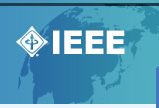2017/8/3(Thu.)14:00~15:00
Howard Beach Resort Kenting
CMOS Microelectronics for DNA detection using Ion-Sensitive Field Effect Transistors
Dr. Pantelis Georgiou (Imperial College London, UK)Abstract
In the last decade, we have seen a convergence of microelectronics into the world of healthcare providing novel solutions for early detection, diagnosis and therapy of disease. This has been made possible due to the emergence of CMOS technology, allowing fabrication of advanced systems with complete integration of sensors, instrumentation and processing, enabling design of miniaturised medical devices which operate with low-power. This has been specifically beneficial for the application areas of DNA based diagnostics and full genome sequencing, where the implementation of chemical sensors known as Ion-Sensitive Field Effect Transistors (ISFETs) directly in CMOS has enabled the design of large-scale arrays of millions of sensors that can conduct in-parallel detection of DNA. Furthermore, the scaling of CMOS with Moore’s law and the integration capability with microfluidics has enabled commercial efforts to make full genome sequencing affordable and therefore deployable in hospitals and research labs.
In this talk, I present how my lab is advancing the areas of DNA detection and rapid diagnostics through the design of CMOS based Lab-on-Chip systems using ISFETs. I will first introduce the fundamentals and physical properties of DNA as a target molecule and how it can be detected using different modalities through the use of CMOS technology. I will then present methods of design of ISFET sensors and instrumentation in CMOS, in addition to the challenges and limitations that exist for fabrication, providing solutions to allow design of large-scale ISFET arrays for real-time DNA amplification and detection systems. I will conclude with the presentation of state of the art CMOS systems that are currently being used for genomics and point-of-care diagnostics, and the results of our latest fabricated multi-sensor CMOS platform for rapid screening of infectious disease.
Biography
Pantelis Georgiou currently holds the position of Senior Lecturer at Imperial College London within the Department of Electrical and Electronic Engineering. He is the head of the Bio-inspired Metabolic Technology Laboratory in the Centre for Bio-Inspired Technology; a multi-disciplinary group that invents, develops and demonstrates advanced micro-devices to meet global challenges in biomedical science and healthcare.
His research includes ultra-low power micro-electronics, bio-inspired circuits and systems, lab-on-chip technology and application of micro-electronic technology to create novel medical devices. One of his key research focuses is on new technologies for treatment of diabetes such as the artificial pancreas but also develops novel lab-on-chip technology using CMOS with application in diagnostics for infection and control of antimicrobial resistance (AMR), in addition to wearable technologies for rehabilitation of chronic conditions such as osteoarthritis.
Dr. Georgiou graduated with a 1st Class Honours MEng Degree in Electrical and Electronic Engineering in 2004 and Ph.D. degree in 2008 both from Imperial College London. He has conducted pioneering work in diabetes technology and is now leading the project forward for the development of the first bio-inspired artificial pancreas for treatment of Type I diabetes. In addition to this, he made significant contributions to the development of integrated chemical-sensing systems in CMOS. He has pioneered the development of the Ion-sensitive Field effect Transistor (ISFET), an integrated pH sensor which is currently being used in next generation DNA sequencing machines. In 2013 he was awarded the IET Mike Sergeant Achievement Medal for his outstanding contributions to engineering and development of the artificial pancreas.
Dr Georgiou is a senior member of the IEEE and IET and serves on the BioCAS and Sensory Systems technical committees of the IEEE CAS Society.
He is also the CAS representative on the IEEE sensors council and an associate editor in the IEEE TBioCAS and Sensors Journals. Within the IET he also serves on the awards and prizes committee.



